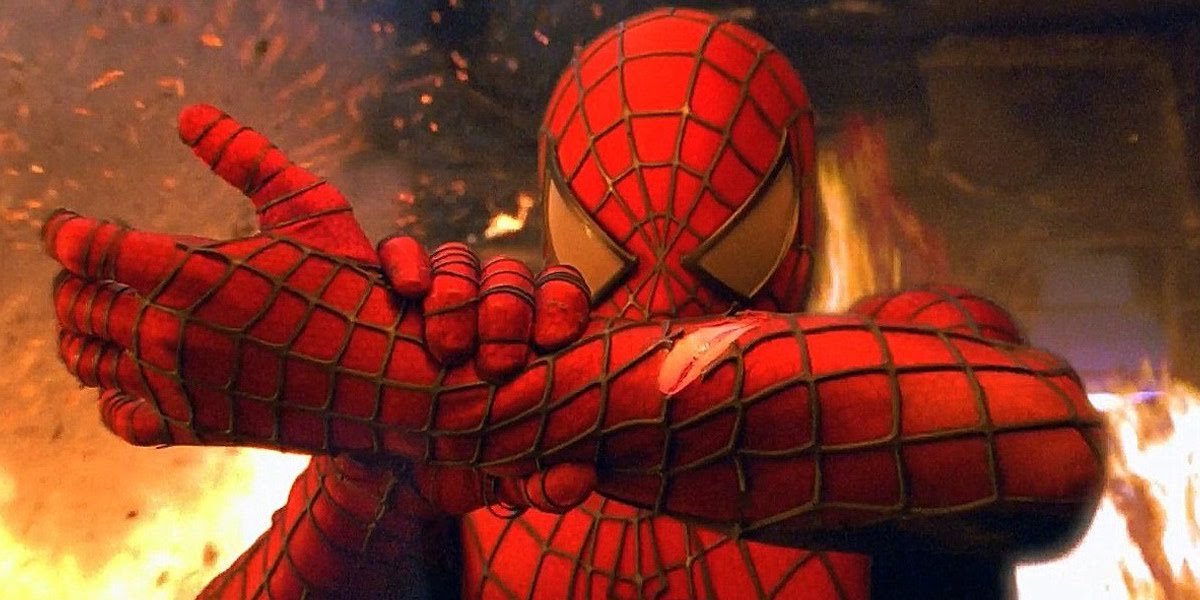The Lesson Kevin Feige Learned On Sam Raimi’s Spider-Man Movies That Helps Marvel Make Movies Today

Your Daily Blend of Entertainment News
You are now subscribed
Your newsletter sign-up was successful
When it comes to Marvel Comics film adaptations, Kevin Feige has been around since day one. And I don’t mean Iron Man, which kicked off the experimental Marvel Cinematic Universe in 2008. I’m referring to the fact that Feige was an intern for Lauren Shuler-Donner on the original X-Men movie, then became an assistant for Avi Arad on Sam Raimi’s Spider-Man trilogy. Feige has been watching the comic-book genre grow and evolve for decades, and has even helped to shape the landscape with his contributions. So when we got a chance to speak recently, I asked him about things he learned back in the day, and how he applies them to the modern Marvel movies. His answer is in the video above.
As the president of Marvel Studios, Kevin Feige has his hands on the steering wheel of a massive movie universe that now affects the films we see in theaters and the shows we watch on Disney+ each week. Avi Arad will tell you that he envisioned a connected Marvel universe of characters in movies back when he pitched the films Blade, X-Men and Spider-Man to competing studios. But it was Feige and his team who brought everything together under the umbrella of Marvel Studios, and he has been making history ever since.
Seeing as how Sam Raimi is returning to the genre for Doctor Strange in the Multiverse of Madness, and Spider-Man: No Way Home is about to bring back villains from the Raimi franchise, I asked Feige if the way they made movies back then is different, and if so, how. He told CinemaBlend exclusively:
You know, it doesn't feel that different to me. I know the landscape is different, but being on the inside of it, I was there mainly watching and learning on those early Sam Raimi Spider-Man movies. And I watched and learned from a group of people that were trying to exceed expectations, and trying to fulfill their own childhood dreams and the childhood dreams of fans of the characters. And that's what we've done on every single film and TV series since then. So in that regard, it's exactly the same.
The thing that sets Marvel Studios apart from its competition seems to be that they put the experience of the audience member and the fan first, and think about business after. Because of that commitment, they are able to get to a point where Shang-Chi (Simu Liu) is getting a big-screen treatment, while Superman can’t even get off of the ground at Warner Bros. and DC. Marvel does it right, and audiences respond.

But when it comes to Sam Raimi returning to Marvel after delivering a trilogy of hit Spider-Man movies, Feige elaborates:
On a personal note, being back with Sam, from the earliest points in my career at Marvel, is very surreal, and a dream come true. Watching him work and seeing his mannerisms again, and realizing that there was even more than I recall that I absorbed from him and learned from him watching and making these movies... (the fact) that he's back behind the camera, and now in the cutting room working on a Doctor Strange movie, is a full circle dream come true.
The foundation of Marvel Studios was laid down back in 2000 when the trilogy of Blade, X-Men and Spider-Man won over audiences and proved to studio executives that comic book movies could be successful. When he comments on the history of the genre, we listen. You will see his next movie under the Marvel Studios label, Shang-Chi and the Legend of the Ten Rings, in theaters on Sept. 3.
Your Daily Blend of Entertainment News

Sean O’Connell is a journalist and CinemaBlend’s Managing Editor. Having been with the site since 2011, Sean interviewed myriad directors, actors and producers, and created ReelBlend, which he proudly cohosts with Jake Hamilton and Kevin McCarthy. And he's the author of RELEASE THE SNYDER CUT, the Spider-Man history book WITH GREAT POWER, and an upcoming book about Bruce Willis.
